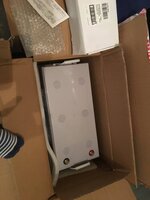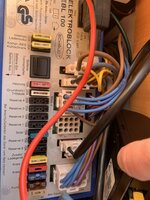- Jan 13, 2020
- 143
- 50
- Funster No
- 67,999
- MH
- Hymer B514
- Exp
- 6 months in a 10m Southwind in the USA (2014). Just bought a Hymer and embarking on a tour of Spain
Hi, yes yes and yes ?Have you measured the space you have for batteries?thats where you need to start and do you have an inverter to charge your laptop



